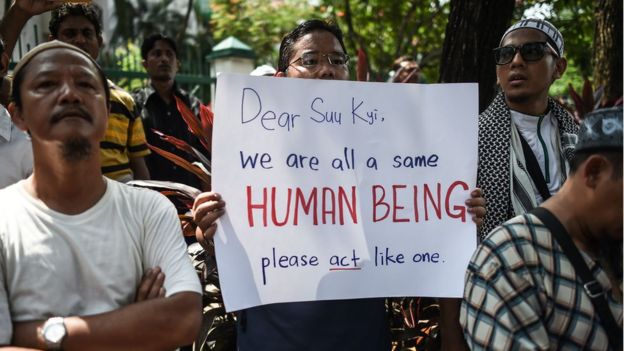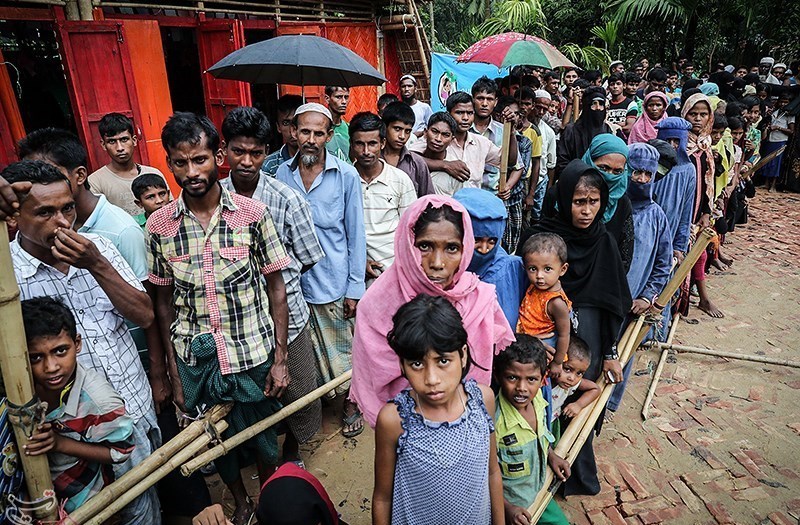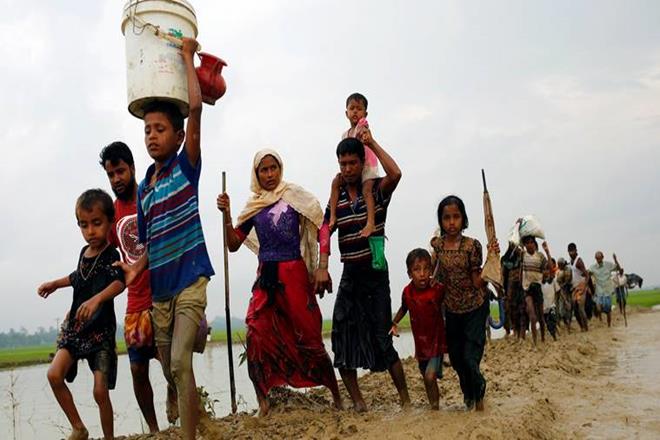Myanar’s Rohingya population is facing a clear case of ethnic cleansing with organised violence and atrocities against them by the overwhelming military establishment. It is a paradox that its Nobel Peace Prize winner leader Aung San Suu Kyi chooses to remain silent and do little to curb the violence against this particular ethnic minority. Does this not reveal the inherent irony of peace politics in our times?
Mark Johnson is currently working as a freelance journalist.
Myanmar is indeed going through a rough phase historically as a major ethnic community in the country is compelled to migrate to Bangladesh under adverse conditions. An ethnic group in Myanmar called the Rohingya which is predominantly Muslim is fleeting towards Bangladesh.
Amidst these situations it is difficult to understand why Aung San Suu Kyi has little to say about the unfolding human disaster. The world had seen Aung San Suu Kyi emerge as humanitarian and peace leader-activist when she spent about 15 years of her life under house arrest in Myanmar. She won global attention and support for her silent strength in the face of brutal military junta. Aung San Suu Kyi spent many of her valuable years in military captivity for her nation even if this meant that she had to live without her family or other material comforts.

Her efforts made her one of the contemporary world’s best known peace activists and she even began getting compared to other iconic leaders of the past like Nelson Mandela and Mahatma Gandhi. She received the Nobel Peace Prize in 1991 but received it in person only in 2012 after her release in 2010.
Her party won an overwhelming majority in the year 2015 and she became the undisputed leader of her country. It is strange that a leader of her calibre is silent and not even responding to the military crackdown on the Rohingya population in Myanmar. Over 3000.000 Rohingya refugees have fled to Bangladesh over the past two weeks due to what appears to be a military crackdown on their villages.
The global body is looking at this as a perfect example of ethnic cleansing that must be stopped at once and peace restored to the troubled Mynamar. The Rohingyas have been discriminated in an organised manner with loot, rape and plunder of their people bcoming a constant phenomenon. Despite receiving much global condemnation the event has not been spoken upon or acted upon by Aung San Suu Kyi.
At this juncture it would be interesting to note what Aung San Suu Kyi is recorded to have once said. In 2012 in her Nobel Prize acceptance speech she said about her path that “A positive aspect of living in isolation was that I had ample time in which to ruminate over the meaning of words and precepts that I had known and accepted all my life. As a Buddhist, I had heard about dukha, generally translated as suffering, since I was a small child,” she said.
Aung San Suu Kyi also spoke about the need to put an end to suffering and the urgent need to abide by the rule of law. She also spoke of her love for universal human rights, and hope for national reconciliation. “Ultimately our aim,” she said “should be to create a world free from the displaced, the homeless and the hopeless, a world of which each and every corner is a true sanctuary where the inhabitants will have the freedom and the capacity to live in peace.”
It is ironic that despite the commitment that she has shown towards her own people in the past and the history of her resistance against the mighty military regime she chooses to allow such violence to unfold in front of her eyes without doing much constructive work against it.
At a time when thousands of ordinary men, women and children are forced to lead terribly humiliating existences which lack safety and human dignity it is only a paradox that a leader acknowledged as a peace worker at a global platform chooses silence over action. It is time we contemplated upon this crisis and thought of politics that is conducive to the sustainable coexistence of various communities.













